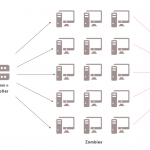The Rise of Cloud Computing in the Healthcare Industry
Private health institutions, hospitals, clinics and doctors are always looking for solutions that will help them in increasing their day to day activities, efficiency and reducing their spending. With the use of cloud computing technologies on the rise in the healthcare sector, their full adoption is still being held by security concerns and regulatory initiatives.
Cloud services for healthcare organizations will provide the healthcare environment with the chance to improve its services for patients. Time is a valuable resource in the healthcare industry since a few precious seconds can save a life. It will be effortless and fast to retrieve information stored in the clouds instead of having to search through the filing cabinets physically. It is also possible to access data stored in the cloud from any location. Any patient that will get sick or injured on vacation will still have all their records available to any doctor they visit.

Here are ways in which the use of cloud computing has impacted the healthcare industry
1. Prevention of Data Loss
Medical records were being kept in physical copies for decades. The papers were filed and stored until when they are needed. The records then went digital and documents were now being typed onto the computers and stored locally in a database.
However, paper records could easily be misplaced, torn, become faded or damaged in case of flooding or fire. When digital records are locally stored, they can be lost when the machine is damaged. There is also a possibility the computers can freeze when documents are being processed, making them not being saved or even get lost.
However, with cloud services for healthcare organizations, one will be able to save information in real-time to a remote location. Saving files in the cloud will completely do away with the risk of losing data.
Information stored in the clouds is more secure. Although cloud storage has a high risk of hacking, cloud provided is known to apply extreme security measures.
2. Big Data Analysis
The cloud will be in a position to process and store big information in massive amounts. Results, procedures and statistics are all recorded. All the data can be analyzed to help in getting trends, locating problems and figuring out solutions. For example, the University of Florida did combine Google Maps using big data to assist in creating heat maps. The heat maps did show where health issues had a higher risk.
By being able to figure out where medical issues were much higher, health officials will be in a position to distribute resources efficiently, providing better care to their community. Without the use of cloud computing in the healthcare industry, it will be challenging to create health maps.
3. More Personalized Care
Cloud computing does work closely with other technological advancements to help offer personalized care. Instead of having to hook patients to machines, there are monitoring devices that are being implanted and shrunk down. The patients will be able to live a life without getting important information concerning their body. The data passes from the implant through to the clouds directly to the patients and doctors.
There are endless possibilities of personalized care as technology advances and the cloud will be playing an essential role in making it happen.
Conclusion
Despite cloud services for healthcare organizations providing significant benefits to the healthcare sectors, there are people who still consider it as unsafe. Confidentiality and security of patient information, compliance with government regulation and interoperability can all be overcome by performing due diligence and choosing the right partners.
















